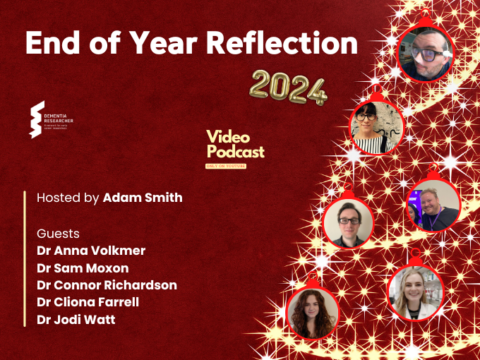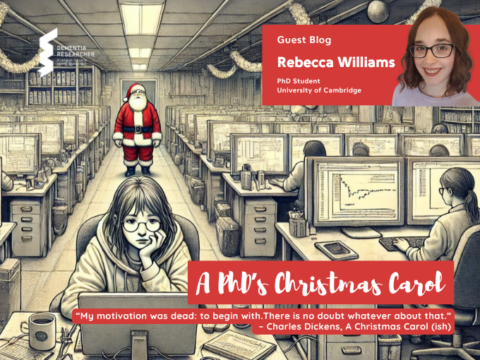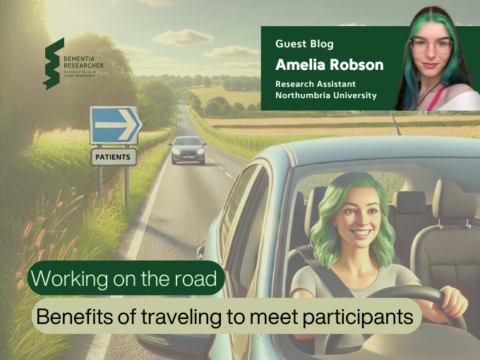I am one of those people who tends to throw things at a wall until they stick. I want to try everything, because what if the thing I haven’t tried yet is my thing?! In short, I’m a dabbler. This is one of my stronger character traits, and it probably goes some way as to explaining why I am not very good with the constraints of academia – although I am a great researcher, irrespective of what my imposter syndrome says – and it’s still a surprise to me that I still work in this world. I perceived these constraints of academia to be at their worst during my PhD, when I felt like I barely had time to breathe, never mind daring to spend some time on myself.
During my PhD, I lost my dad, a grandparent, and a few friends from the mental health aspects of COVID. I didn’t have time to catch my breath and process any of this. Instead, I put so many aspects of myself on the back burner during my PhD – grieving different people, recognising who I am in my own queer identity, exploring who I am as a person outside of science. Love would probably have been there too, were it not for me falling for someone who was doing their PhD at the same time as me, in the same group as me. I feel like I put myself on hold for my PhD. Not just my life, but my literal identity. Eighteen-hour days working on a thesis don’t really allow for any sort of exciting or enjoyable external thought.
I’m now thirty and have been in a post-doc role that I love for more than two years now. But because of all of this, I feel like I am stuck at twenty-four, and that I am still looking for who I am. A PhD isn’t the only reason for this, but I equally don’t feel I would be in a position like this if I hadn’t done one. Granted, I cannot stress enough that this is not everyone’s experience of a PhD, by any stretch, but I am at the extreme end of a bell curve. That being said, it is important that we talk about this, for those who are closer to my position than the almost always 9-5, extremely supportive environment that my partner and many others experienced.
This was not a circumstance of my own creation. Sure, I have traits and life experience that made me more susceptible to my PhD experience being overarchingly bad. But the crux of it was more to do with the expectations and demands of academia, the normalisation of the idea of grinding until you break, and then grinding some more…oh that’s not enough? Guess you better keep on grinding then…what’s that, you didn’t do any work this weekend? Oh, well I worked for about 20 hours and I thought that was nothing…it’s 5pm and you’re leaving? But no one else has left the office yet…how do you expect to finish your PhD if you go on holiday? You’ll be out of the rhythm when you come back…maybe you should leave starting a family or getting married until you’re done…
By normalising this, it becomes an expectation. And when this expectation then morphs into the new baseline, it very quickly becomes the demand.
The only way to finish your thesis without being without a salary whilst you write up. The only way to make sure that you write enough to get that next job. The only way to then get those papers published. The only way to submit that abstract in time because you only started on it a few days before the deadline with some data that you collected and analysed last-minute on a hunch. The only way to ensure you can get the funding that secures your travel to a conference where you can engage with your peers and make those connections to get that next job or that collaboration. The only way that you facilitate those around you and their successes, in hopes they will do the same for you. The only way, the only way, the only way, the only way, the only way.
When you read that, did your skin crawl as mine did when I wrote it? Did you panic? Did you think “what am I doing reading this blog when I need to get back to work?!” Probably. Did you think, “oh but that’s just the way it is, it’s what we accept in this academic world”? Perhaps. We need to stop normalising these narratives in academia, from the micro to the macro, it is affecting us all. And these expectations – nay, demands – are not ok.
A PhD is supposed to be X years, and that’s supposed to be that, you go on to do whatever else you desire as your next step. But, as I quickly learned, the ramifications may be far more outwardly reaching than any of us thought when we started. I remember reading a Reddit post sometime last year where someone asked a PhD forum what traits they still have from their time doing a PhD. A person whose partner had done a PhD responded, commenting at length about how their partner needs constant momentum and cannot stop or rest and relax. Reading in detail about this person I didn’t know, thinking ‘yep, that’s me’ again and again with every sentence, I had an epiphany about how I was now.
Remember I said I was a dabbler? This, combined with a newly-recognised momentum, and my PhD now being complete with nothing as time-consuming to channel myself into is a fascinating problem to have, and one that I feel like no-one really talks about (at least in my experience). I feel like I am pinballing about, screaming “THIS IS ME NOW” whenever I find another thing I want to try (Gene from Bob’s Burgers, anyone?) and use to reclaim some semblance of myself from before my PhD, or to redirect the fact that even a couple of years out, I can’t slow down and don’t know where to direct the intense narrow fixation feeling that I got so used to during my PhD.
It has taken me a while to get to the point I am at now, but I have realised that if I can’t slow myself down and find my breaks right now, I had better use this momentum to make up for lost time and do things that are a kindness to myself and help me to reclaim the facets of myself that I lost whilst doing my PhD. This isn’t a great place to end a blog, but the truth is that this is still very much an active and ongoing process for me, and one that I hope to write more about in these blogs (because these things have taught me a surprising amount about the world of research!). For now, I will close today with a non-exhaustive list of some of the things I have tried, or am in the process of trying, in this pursuit:
- Burlesque
- Life modelling
- Rug making
- Sculpture
- Quilting
- Rope dart
- Skipping
- Pottery
- Drag
- Roller skating
- Weightlifting
- Hula hooping
That’s it for now, but I’m sure I will have picked up something else before I see you at my next blog.

Jodi Watt
Author
Dr Jodi Watt is a Postdoctoral Researcher at University of Glasgow. Jodi’s academic interests are in both healthy ageing and neurodegenerative diseases of older age, and they are currently working on drug repurposing for dementia. Previously they worked on understanding structural, metabolic and physiological brain changes with age, as measured using magnetic resonance imaging. As a queer and neurodiverse person, Jodi is also incredibly interested in improving diversity and inclusion practices both within and outside of the academic context.

 Print This Post
Print This Post





